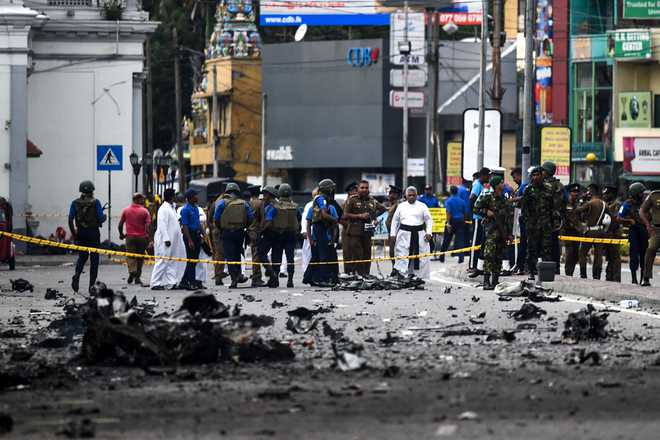
Adecade after peace returned to Sri Lanka with the end of a bloody, protracted civil war, the island nation — and the whole world — has been jolted by the Easter Sunday suicide bombings. This is said to be the biggest terror attack in the country’s history. According to reports, there was prior intelligence warning that the National Thowheeth Jama’ath, a radical Muslim group, was planning to carry out suicide attacks targeting prominent churches in Colombo. A committee appointed by Sri Lankan President Maithripala Sirisena is conducting an investigation into possible lapses on the intel front.
The Sri Lankan government is rightly being secretive about the identity of the 20-odd suspects as it is already grappling with the spread of hate speeches and misinformation on social media platforms. Online attempts to foment sectarian hatred have repeatedly led to a crackdown in the Buddhist-majority country, which has Christians, Muslims and Hindus among its minority communities. In March 2018, a state of emergency had been declared after members of the Buddhist Sinhala community vandalised mosques and Muslim-owned properties.
The attacks on churches in Colombo, Negombo and Batticaloa have fuelled speculation that the bombings were somehow in retaliation for the Christchurch (New Zealand) shootings in which a gunman targeted worshippers in two mosques on March 15. Though no connection between the two horrifying incidents has been established so far, there is a common thread of intolerance and extremism. India is another country that witnessed a major terror attack earlier this year when a local youth rammed an explosive-laden car into a CRPF convoy at Pulwama. The fact that terror can strike anytime, anywhere should act as a wake-up call for the international community. World leaders keep asserting that terrorists have no religion or nationality. They also need to urge their citizens not to tar an entire community with the same brush if some black sheep go on the rampage. Radicalisation, online or otherwise, must be dealt with decisively. Stringent and well-coordinated efforts by various countries can go a long way in reining in terrorism, even as the rogue states should be diplomatically isolated if they persist with their misadventures.



























